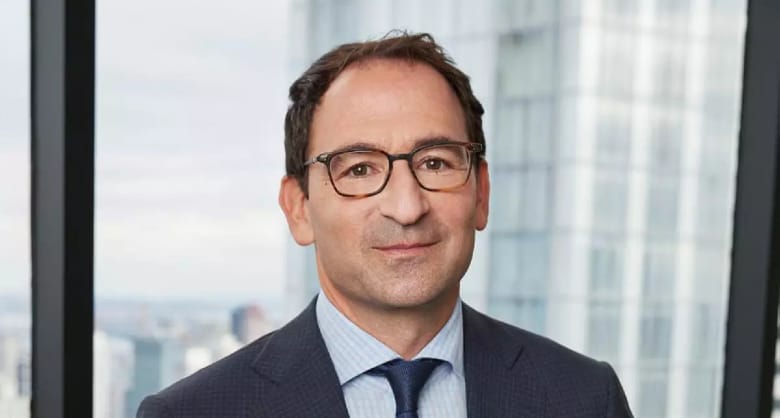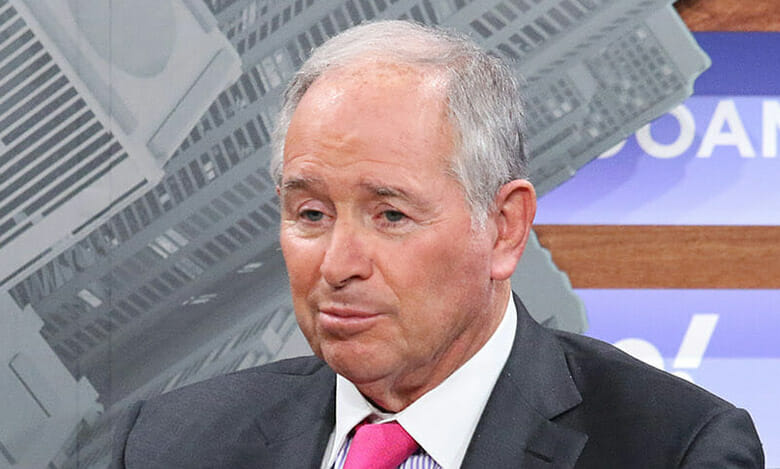
Jonathan Gray, Blackstone’s president and chief operating officer
Blackstone’s real estate business posted a 50 percent revenue plunge in 2023 and stood out as the firm’s worst-performing segment, as high interest rates dented returns at the world’s largest alternative investment manager.
The Manhattan-based private equity titan recorded $3.4 billion of revenue for its real estate segment for the year, half of the $6.8 billion it achieved in 2022, according to the firm’s 2023 fourth quarter and full year results announced on Thursday.
Real estate, Blackstone’s largest business by assets and revenue, was the only segment to post negative investment returns for the year, with the fund manager’s income-focused core plus property strategy losing 4.3 percent, while its riskier opportunistic funds lost 6.3 percent.
The lacklustre real estate results contrast with positive double-digit returns in the company’s corporate private equity, infrastructure, private credit and liquid credit strategies last year, as well as positive returns for both real estate strategies in 2022.
Despite the 2023 underperformance, chairman and chief executive Stephen Schwarzman expressed optimism for the new year, pointing to moderating cost of capital and lower inflation, as well as improving market confidence, as indicating the end of a slide in commercial real estate values and preparing the company for a rebound.
“Overall, with the cost of capital moving lower, market confidence returning, we believe we’re entering a supportive environment for our business,” Schwarzman said in the company’s earnings call. “I believe that we will look back at 2023 as the cyclical bottom for our firm.”
Firmwide, Blackstone’s revenues declined 6 percent year-on-year to $8.0 billion, while attributable net income fell 20 percent to $1.4 billion. Total assets under management grew 7 percent to $1.0 trillion over the same time period.
Sheds, Beds, and Data Centres
Blackstone attributed the revenue drop to limited realisations as the firm opted to sell fewer assets amid an “unfavourable” market, with the firm’s president and chief operating officer Jonathan Gray noting that the Federal Reserve’s interest rate hikes had dented asset valuations.
The company realised $18.7 billion of property investments in 2023, a 49 percent decline from the previous year, while capital deployment in the segment plunged 69 percent to $15.0 billion.

Blackstone’s chairman and chief executive officer, Stephen Schwarzman (Getty Images)
Despite the underperformance, real estate remains the fund manager’s largest business, accounting for 32 percent of its total assets under management and 42 percent of its revenue for the year. Real estate assets under management grew by 3 percent year-on-year to $336.9 billion.
Emerging from 2023’s challenges, the fund manager, which currently owns over 12,000 real estate assets globally, pointed to “high single digit” growth rates in its logistics, student housing and data centre investments as holding promise for profit, which those once-niche strategies now collectively representing the firm’s largest property exposure by sector.
“In our existing portfolio, we’ve absorbed the increase in interest rates and cash flows are growing more stable in most areas. We continue to see robust fundamentals in logistics, student housing and data centres, which together comprise the majority of our real estate equity portfolio,” said Gray.
The shift towards sheds and beds comes as Blackstone remains cautious on office investments, with the sector facing “real fundamental headwinds,” especially in the US. The sector accounted for just 2 percent of its property portfolio as of the second quarter, Blackstone said.
“We believe values in commercial real estate are bottoming. This doesn’t mean there won’t be more troubled real estate investments to come in the market, particularly in the office sector, which were set up during a period when borrowing costs were much lower. Nor does it mean we won’t see a slowing in fundamentals in certain sectors with excess near term supply,” said Gray.
$65B in Dry Powder
Blackstone had $65.2 billion of global real estate dry powder at year-end and expects that deal activity will accelerate this year, particularly as we head into the second half. Having called a bottom to valuations, Blackstone predicts that it will make more acquisitions in 2024 and says it is “looking to take advantage of this lack of confidence in the marketplace.”
The fund manager had disclosed in its third quarter earnings call that the “vast majority” of its Asia real estate strategy remained uninvested, and noted that its latest European real estate vehicle would begin deploying capital in the fourth quarter.
The company has recently exited several investments in Asia Pacific, including its interest in a profit participation scheme linked to a Singapore apartment project, a mid-rise office and retail building in Shanghai, the Arc Place office tower in Seoul, a Sydney office and retail complex, and a set of six Japanese warehouses, as well as its remaining stake in India’s Embassy Office Parks REIT.
Earlier this month, Blackstone promoted its global co-head of real estate, Ken Caplan, and European head of private equity, Lionel Assant, to be the firm’s global co-chief investment officers, while Nadeem Meghji, head of real estate for the Americas, took over Caplan’s co-head of global real estate role.
Leave a Reply